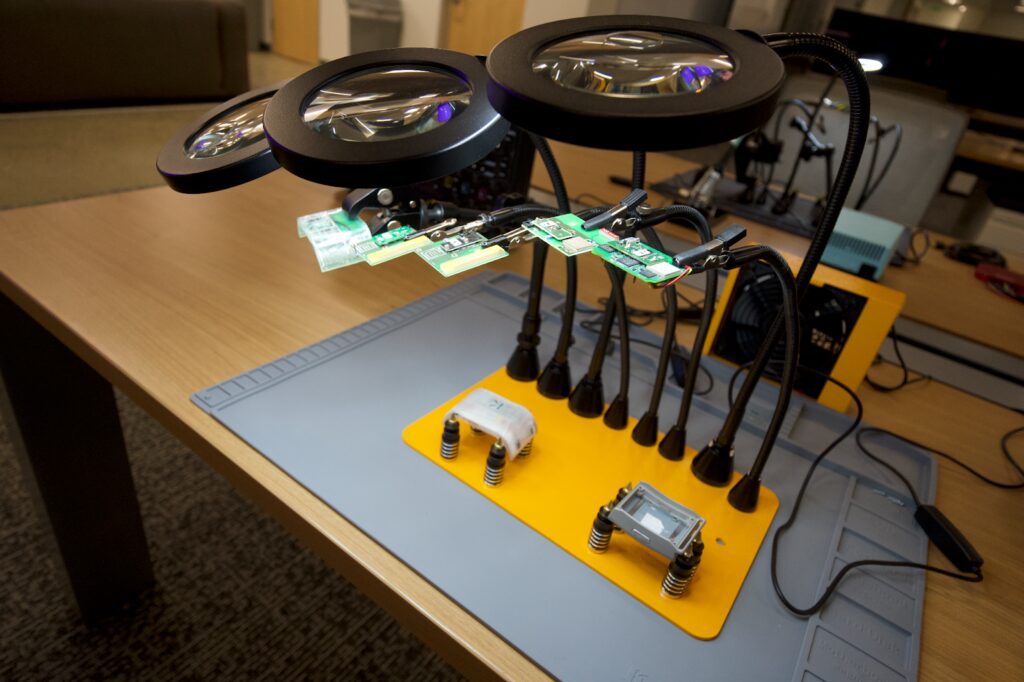For years, wearable technology has focused on fitness — counting steps, tracking sleep, and measuring heart rates. But what if these devices could do more? What if they could replace lab tests, predict health issues before symptoms appear, and give people real-time insights into their bodies? That’s exactly where the future of health tech is headed, and KOS AI’s Argus is leading the way.

Argus, a needle-free glucose monitor, is revolutionizing diabetes care by eliminating painful finger pricks and invasive sensors. But its impact could extend far beyond blood sugar tracking. With its AI-powered optical sensing technology, KOS AI is paving the way for a future where wearables monitor not just glucose but a wide range of health markers — turning real-time health tracking into a reality.
The Rise of AI-Powered Wearable Health Tech
Health-tracking wearables have come a long way from simple pedometers. Smartwatches now monitor heart rate, blood oxygen, and ECG readings, offering a glimpse into personal health. But these metrics are just the beginning. What’s next is a new generation of medical-grade wearables that track internal health markers — providing real-time data once only available through lab tests.

That’s where Argus stands out. Unlike traditional glucose monitors that require blood samples or skin-inserted sensors, Argus uses light-based technology to analyze glucose levels without breaking the skin. This same multi-wavelength optical sensing method, combined with AI-driven analysis, has the potential to monitor other key health indicators, such as:
- Hydration Levels: Prevent dehydration before it happens.
- Lactate Levels: Help athletes optimize performance and recovery.
- Cortisol and Stress Markers: Provide real-time stress tracking for better mental health management.
- Metabolic Rates: Offer insights into calorie burn and nutritional needs.
By expanding beyond glucose monitoring, KOS AI is positioning itself at the forefront of AI-driven preventative healthcare.
How AI Is Changing Preventative Healthcare
Most people visit the doctor only after symptoms appear. But AI-powered wearables could shift this reactive approach to a preventative model. Instead of waiting for issues to surface, people could receive real-time alerts when their health markers show early signs of imbalance.
For example, chronic stress is linked to numerous health problems, from heart disease to weakened immunity. A device that tracks cortisol levels throughout the day could help users make informed lifestyle changes before stress takes a toll. Similarly, a wearable that detects hydration and electrolyte imbalances could be a game-changer for athletes, the elderly, and those with kidney conditions.
With Argus as a proven non-invasive health tracking device, KOS AI is opening the door to a future where wearables provide continuous health data, helping people stay ahead of potential issues.

The Road Ahead: What’s Next for KOS AI?
For now, Argus is focused on revolutionizing glucose monitoring, giving people with diabetes an easier, pain-free way to track their blood sugar. But the technology behind it — AI-driven optical sensing — has the potential to push wearable health monitoring even further.
KOS AI continues to refine Argus’s accuracy and user experience, ensuring it remains reliable for real-world use. As AI-powered health tracking gains momentum, devices like Argus could help reshape how people monitor chronic conditions, offering more convenience, accessibility, and real-time insights into their well-being.
Stay Ahead of the Future of Health Tech
The movement toward AI-powered, real-time health monitoring is accelerating. With KOS AI leading the charge, the days of waiting for lab results or guessing at your health status could soon be over. Argus may have started with glucose monitoring, but its potential reaches much further.
For more information, reach out to KOS AI.











